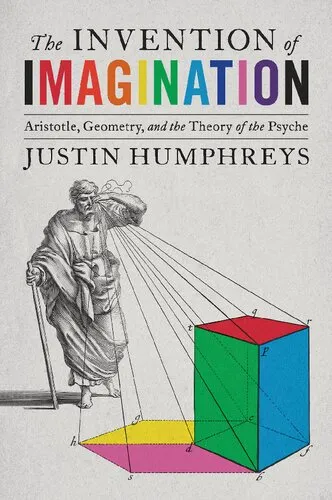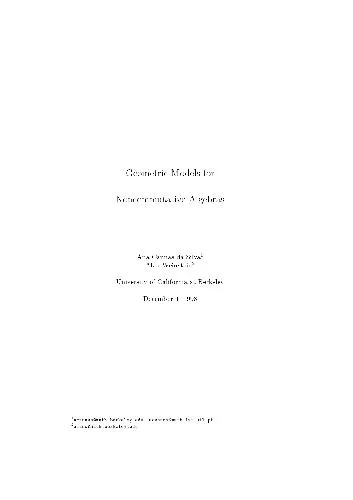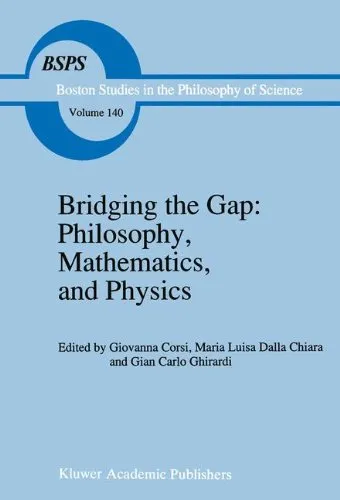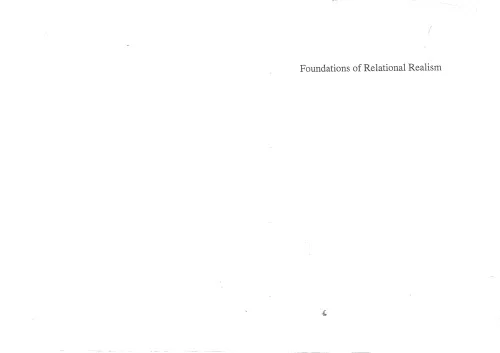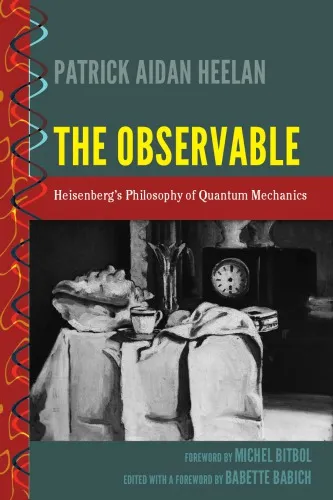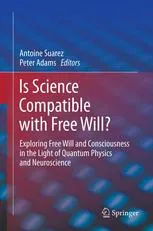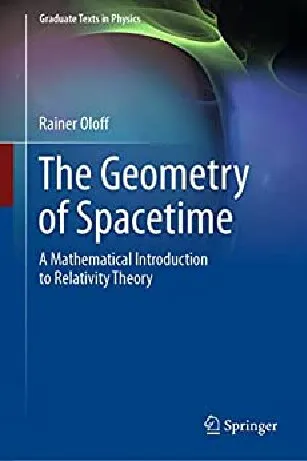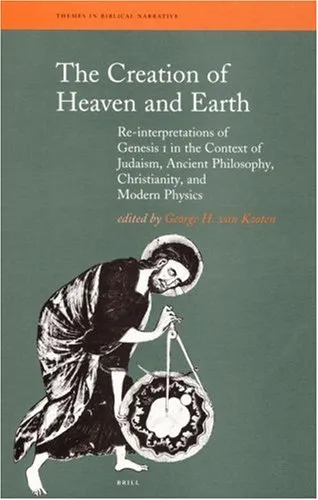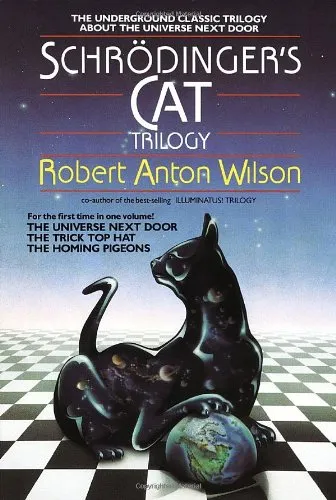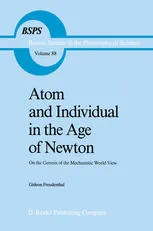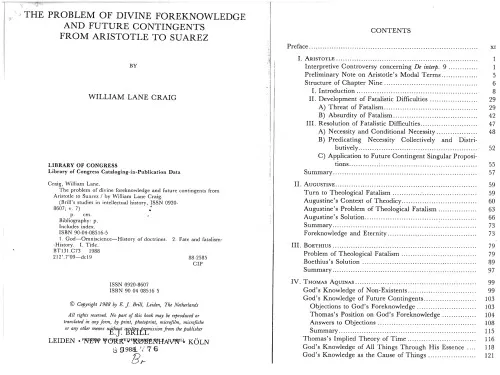The Invention of Imagination: Aristotle, Geometry and the Theory of the Psyche
4.6
بر اساس نظر کاربران

شما میتونید سوالاتتون در باره کتاب رو از هوش مصنوعیش بعد از ورود بپرسید
هر دانلود یا پرسش از هوش مصنوعی 2 امتیاز لازم دارد، برای بدست آوردن امتیاز رایگان، به صفحه ی راهنمای امتیازات سر بزنید و یک سری کار ارزشمند انجام بدینکتاب های مرتبط:
معرفی جامع کتاب 'The Invention of Imagination: Aristotle, Geometry and the Theory of the Psyche'
کتاب 'The Invention of Imagination: Aristotle, Geometry and the Theory of the Psyche' اثری قابلتأمل و عمیق در حوزه فلسفه، روانشناسی و هندسه است که نگاهی متمایز به تفکر ارسطو و نقش تخیل در شکلگیری ذهن و روان انسان ارائه میدهد. نوشته جاستین هامفریز، این کتاب تلاش میکند تا ارتباط بین مفاهیم انتزاعی هندسه و اصول اساسی فلسفه ارسطو را به شکلی بدیع درک کند و نشان دهد که چگونه تخیل به عنوان ابزاری برای تفسیر و درک جهان عمل میکند. این کتاب ترکیبی منحصر به فرد از تحلیلهای فلسفی، ریاضیات و روانشناسی تفسیری است که هر خوانندهای را به دام اندیشهای عمیق و نوآورانه میکشاند.
خلاصهای جامع از کتاب
کتاب 'The Invention of Imagination' به بررسی این موضوع میپردازد که چگونه ارسطو در نظریات خود پیرامون روان، از ابزار هندسی برای بیان ماهیت ذهن و نقش تخیل بهره گرفته است. این کتاب به سه بخش اصلی تقسیم میشود. در بخش اول، خواننده با افکار ارسطو درباره روان، تخیل و هوش آشنا میشود. این بخش توضیح میدهد که چگونه ارسطو برای اولین بار از تخیل به عنوان پایهای برای شناخت و تجربه یاد کرده است.
در بخش دوم، نقش هندسه به عنوان زبانی برای نمایش واقعیتهای غیرقابل مشاهده بررسی میشود. نویسنده نشان میدهد که چگونه ارسطو مفاهیم هندسی مانند خط، سطح و نقطه را برای توضیح ساختارهای ذهنی به کار گرفته است. سرانجام، بخش سوم به بررسی تلاقی میان هندسه و روانشناسی ارسطویی میپردازد و خواننده را با نظریهای منحصربهفرد از تخیل آشنا میکند که درک ما از فضای ادراکی را دگرگون میسازد.
نکات کلیدی
- نقش تخیل در نظریات ارسطو و جایگاه آن در فلسفه.
- پیوند میان مفاهیم هندسی و ساختارهای ذهنی.
- بازتعریف تخیل به عنوان ابزاری برای تفکر، شناخت و خلاقیت.
- تأثیر این دیدگاه بر فلسفه مدرن و روانشناسی.
جملات معروف از کتاب
"تخیل نه تنها ابزاری برای خلاقیت هنری است، بلکه بنیادی است برای ادراک و تفکر فلسفی."
"همانطور که خطوط و نقاط در هندسه به ساخت اشکال کمک میکنند، تخیل در ذهن انسان چنان عمل میکند تا تصاویر و معانی پیچیده را بسازد."
چرا این کتاب مهم است؟
کتاب 'The Invention of Imagination' به دلیل محتوای عمیق و تحلیلهای نوین خود در فلسفه و روانشناسی اهمیت دارد. این کتاب نه تنها پلی میان تفکر کلاسیک و مدرن ایجاد میکند، بلکه نقش تخیل را به عنوان مفهومی شناختی و فلسفی بازتعریف میکند. نویسنده با ارائه نگاهی تازه به تخیل ارسطویی، نشان میدهد که چگونه این مفهوم میتواند در توضیح تجربههای انسانی، هنر، علم و فلسفه مدرن کاربرد داشته باشد. این کتاب فرصتی است برای تمامی علاقهمندان به فلسفه، روانشناسی و تاریخ علم که جهان را از دریچهٔ جدیدی ببینند و تخیل خود را به چالش بکشند.
Introduction to "The Invention of Imagination: Aristotle, Geometry and the Theory of the Psyche"
In this groundbreaking book, "The Invention of Imagination: Aristotle, Geometry and the Theory of the Psyche," I invite readers on a profound journey into the philosophical and psychological origins of human imagination. By delving deeply into the works of Aristotle, exploring the elegance of geometry, and synthesizing these with the emerging frameworks of the human psyche, this work reignites timeless questions about creativity, perception, and the mind's limitless potential. If you’ve ever wondered where imagination originates or how the ancient philosophers conceptualized the foundations of the human mind, this book will provide both answers and new avenues of curiosity.
Detailed Summary of the Book
At its core, this book examines the philosophical and intellectual lineage of imagination, tracing its conceptualization back to Aristotle's foundational ideas. Aristotle's philosophy, which anchors much of Western thought, considered imagination (or "phantasia") not merely as an abstract phenomenon but as a pivotal component of how we process reality, bridge knowledge, and generate insights. By integrating his theories with concepts from classical geometry, we uncover the structural aspects of imagination—tools by which the mind creates order, symmetry, and thought from a chaotic sensory world.
These ideas are then juxtaposed with modern understandings of psychology and the psyche, pulling from fields such as cognitive science and psychodynamic theory. The book aims to tether ancient philosophical views with modern theories, suggesting that imagination is not just a mental pastime but an evolutionary cornerstone of human cognition and innovation.
Readers will encounter not only an academic exploration but also practical applications of these philosophical ideas. Through examples from art, literature, and science, the book illustrates how imagination has shaped societies and advanced progress throughout history. Sections are dedicated to literary traditions that extended Aristotelian imagination, alongside famous case studies of visionary figures in history whose imaginations transformed the world.
Key Takeaways
- Imagination is both a philosophical and psychological construct that bridges sensory experience and abstract thought.
- Aristotle laid the groundwork for our understanding of imagination, viewing it as an essential intermediary between perception and knowledge.
- Geometry and mathematical constructs mirror the processes of the imagination, creating order and meaning from perceived chaos.
- The study of imagination continues to inform modern views on creativity, problem-solving, and human innovation.
- Imagination is not just an individual phenomenon but a communal force that has historically shaped art, science, and civilization.
These key insights demonstrate the enduring relevance of Aristotle's ideas when examined through the lenses of both ancient philosophy and contemporary science. The book also challenges readers to rethink how imagination influences their own cognition, creativity, and interactions with the world.
Famous Quotes from the Book
"The imagination is where reason meets wonder—a laboratory of the mind that builds bridges between reality and possibility."
"Aristotle’s imagination was far more than fancy; it was a machine of thought, assembling the known into something greater, the unknown."
"Just as geometry provides structure to shapes unseen, so too imagination provides clarity to thoughts unspoken."
These carefully crafted reflections capture the essence of the book’s exploration into the role and scope of imagination in human life.
Why This Book Matters
In a time where creativity and innovation are prized more than ever, understanding the mechanics of imagination holds both academic and practical significance. "The Invention of Imagination" steps into this dialogue by drawing on the insights of one of history's greatest thinkers—Aristotle—and enriching them with interdisciplinary perspectives.
Machines may imitate human behavior, but imagination remains a uniquely human phenomenon that resists mechanization. This book serves as a timely reminder of how imagination underpins everything from empathy to invention. By recognizing its philosophical origins and psychological functions, readers are empowered to cultivate their own creative potential more consciously. Moreover, educators, psychologists, and thought leaders can view this book as a guide to fostering imagination, whether in individuals or in societal systems.
Ultimately, this work moves beyond theoretical deliberation, posing imagination as a powerful tool for progress and a source of profound personal insight. By rediscovering the intellectual and emotional dimensions of imagination, readers will not only uncover its historical significance but also embrace its relevance in navigating the complexities of the modern world.
دانلود رایگان مستقیم
شما میتونید سوالاتتون در باره کتاب رو از هوش مصنوعیش بعد از ورود بپرسید
دسترسی به کتابها از طریق پلتفرمهای قانونی و کتابخانههای عمومی نه تنها از حقوق نویسندگان و ناشران حمایت میکند، بلکه به پایداری فرهنگ کتابخوانی نیز کمک میرساند. پیش از دانلود، لحظهای به بررسی این گزینهها فکر کنید.
این کتاب رو در پلتفرم های دیگه ببینید
WorldCat به شما کمک میکنه تا کتاب ها رو در کتابخانه های سراسر دنیا پیدا کنید
امتیازها، نظرات تخصصی و صحبت ها درباره کتاب را در Goodreads ببینید
کتابهای کمیاب یا دست دوم را در AbeBooks پیدا کنید و بخرید
1338
بازدید4.6
امتیاز0
نظر98%
رضایتنظرات:
4.6
بر اساس 0 نظر کاربران
Questions & Answers
Ask questions about this book or help others by answering
No questions yet. Be the first to ask!
